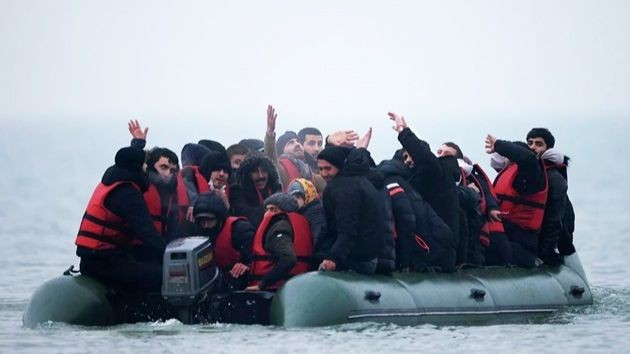Under the agreement, EU member states can either accept a share of asylum seekers or contribute to a common EU-managed fund to care for migrants. If the applicant does not have a chance to gain asylum in the EU, they will be returned immediately, and all asylum applications are to be handled within six months. Countries that are not willing to accept asylum seekers will contribute financial support of up to 20,000 EUR per migrant to a fund managed by the EU to assist migrants.
The reached agreement has broken the standstill on the migration issue, which has caused many disagreements and disputes among EU countries in recent time. However, EU Commissioner for Home Affairs Ylva Johansson stressed that the issue of where to return rejected asylum seekers continues to be a major problem that the EU must focus on solving.
The number of migrants crossing the Mediterranean border into Europe has skyrocketed in recent years, putting great pressure on several EU countries, including Italy. In the first four months of 2023 alone, the number of migrant arrests along the Central Mediterranean route increased by 28% to nearly 42,200 cases. Since the beginning of this year, migrants through the Central Mediterranean have accounted for more than half of all illegal entry into the EU.
Experts say that warmer weather in the Mediterranean region during the spring-to-summer transition period is a factor increasing the number of migrants. However, favourable weather is not the only reason. Other causes include the economic crisis, political instability, violence, and conflicts in countries such as Libya, Tunisia, Pakistan, and others.
The issue of migrants was overshadowed on the EU’s agenda during the outbreak of the COVID-19 pandemic. However, as the COVID-19 pandemic cooled down and border opening policies were implemented, the flow of illegal migrants crossing the Mediterranean into the EU soared sharply again.
Some humanitarian organisations have recently argued that the EU has not stepped up its efforts to create safe and legal routes for the flow of refugees to Europe. In the first half of 2023, more than 1,000 refugees lost their lives in the Mediterranean.
The Office of the United Nations High Commissioner for Human Rights stated that deaths of migrants in the Mediterranean is the result of a failed migration management system that lacks unity and does not place the rights of migrants in the centre. Facing this situation, the issue of migration has now returned to the list of priorities on the EU’s agenda, alongside other hot issues such as the conflict in Ukraine, inflation, climate change, and others.
The agreement to share asylum seekers marks an important achievement for Sweden as the rotating presidency of the EU Council. However, as the ultimate goal of the bloc is to establish a permanent, sustainable, and effective migration control system, this agreement is not enough to deal with the migration conundrum.
















